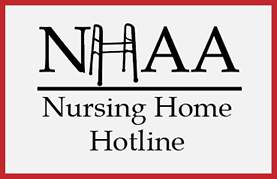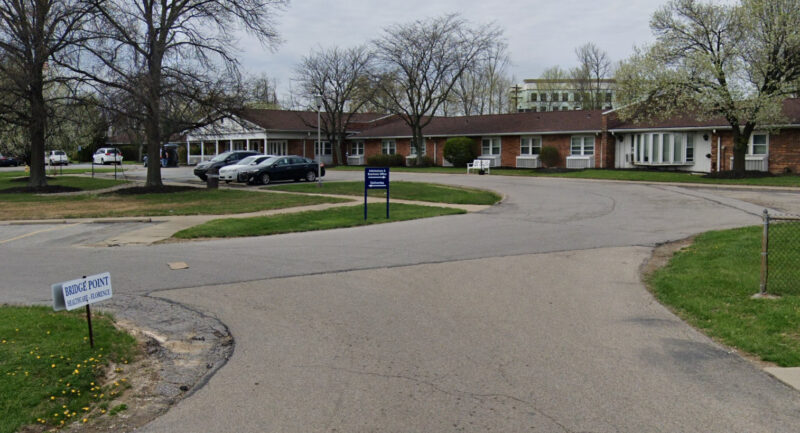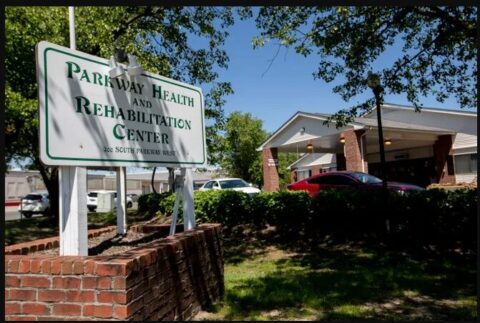State Findings:
Based on interview, record review, review of the facility’s policy, and review of the Centers for Medicare and Medicaid Services (CMS) Resident Assessment Instrument (RAI) Manual Version 3.0, it was determined the facility failed to ensure Comprehensive Care Plans (CCP) were reviewed and revised to address the need for additional interventions to monitor and maintain sufficient respiratory status for one (1) of thirty (30) sampled residents (Resident #110).
The facility admitted Resident #110, on [DATE] with current diagnoses of Chronic Obstructive Pulmonary Disease (COPD), Asthma, Dysphasia, Heart Failure (HF), and Chronic Kidney Disease (CKD). Resident #110 had been hospitalized , from [DATE] to [DATE] with Sepsis and Acute Respiratory Failure. In addition, Resident #110 had been sent to the hospital Emergency Department (ED), on [DATE], for edema and was returned to the facility five (5) hours later, on [DATE].
However, there was no documented evidence the facility identified the resident’s risks and revised the Comprehensive Care Plan (CCP) to give direction for staff to monitor and maintain sufficient respiratory status for the resident.
On [DATE], Resident #110 experienced a change in condition (CIC) with his/her respiratory status. Resident #110 was transferred to the hospital’s ED (Emergency Department), on [DATE] at 5:52 PM, via Emergency Medical Services (EMS) and was admitted . Resident #110 presented to the ED in pain, lethargic and moaning with diminished lung sounds bilaterally (both sides), bilateral upper and lower extremity swelling and edema, febrile, and with an altered mental status. Resident #110 returned to the facility under Hospice Care, on [DATE], and expired on [DATE].
The facility’s failure to revise the resident’s care plan to address the resident’s respiratory status has caused or is likely to cause serious injury, harm, impairment or death to a resident. Immediate Jeopardy (IJ) was identified on [DATE] in the area of 42 CFR 483.21(b)(2) Comprehensive Resident Centered Care Plans, Timing and Revision of Care Plans, and was determined to exist on [DATE].
Observation and interview with Resident #110, on [DATE] at 9:20 AM, revealed the resident in bed lying on his/her left side with his/her heels pressed against the mattress. There was generalized edema observed over the lower extremities, bilateral hands, and upper extremities; the left hand had an indentation where it rested against the bed. Further observation revealed the resident was on two (2) liters/minute of oxygen via nasal cannula, but the oxygen tubing was not labeled with a date or initialed. Additional observation showed the resident’s BIPAP mask and tubing were on the floor.
Interview with Registered Nurse (RN) #3, on [DATE] at 8:30 AM, revealed Resident #110 was in no respiratory distress throughout the evening of [DATE], until about 5:30 AM on [DATE]. Continued interview revealed at 6:30 AM, a State Registered Nurse Aide (SRNA) observed the resident with thick phlegm coming from the mouth. RN #3 stated she notified the Physician. Per interview, the Physician examined the resident that morning and ordered lab work and a chest x-ray. Further interview revealed she did not update the care plan, and she left for the day. However, she stated any licensed nurse could update care plans. RN #3 stated the care plan should have been revised to include increased monitoring for Resident #110 when he/she had the change of condition.
Interview with the Physician, on [DATE] at 10:12 AM, revealed he examined Resident #110 on the morning of [DATE]. Per interview, he assessed the resident with fluid overload caused by his/her recent intravenous (IV) antibiotic therapy, and it was his intent to diurese (remove fluid) the resident. The Physician stated he gave a verbal order to the Director of Nursing (DON) directly to place an indwelling catheter, give one (1) dose of Furosemide (a diuretic used to remove excess fluid from the body) sixty (60) mg IV (intravenous), monitor lung sounds, and document strict I&O’s (fluid intake and output). The Physician stated he gave the order specifically to the DON because, as an RN (Registered Nurse), she was the only nurse in the building, who could push IV Furosemide. Additionally, he stated he ordered strict I&O’s and the monitoring of the resident’s lung sounds to assess the resident’s response to the treatment.
However review of the resident’s CCP revealed no documented evidence the care plan was revised to reflect these new orders.
Continued review of Resident #110’s Nursing Progress Note, dated [DATE] at 3:09 PM, revealed the first CIC follow-up note by LPN #9. The note stated the resident’s condition had declined, and the Physician was notified. Furthermore, the note stated new orders were received to continue to hold PO (oral) medications, insert a Foley catheter for strict I&O’s, and provide comfort care; there was not a specific time given for receipt of the orders. However, the resident’s CCP was not revised to reflect these changes to the resident’s plan of care.
Interview with Agency State Registered Nurse Aide (SRNA) #21, on [DATE] at 3:04 PM, revealed she was assigned to Resident #110 on [DATE]. Per interview, she stated that when she cared for the resident, he/she was crying and complained of having no air (SOA). Per interview, SRNA #21 stated she reported this to the nurse, but did not recall if the nurse assessed the resident. She further stated no one made her aware of any revisions to the resident’s care plan. She stated all she knew was the resident was sent to the hospital later that day.
Interview with LPN #9, on [DATE] at 8:15 AM, revealed she was assigned to Resident #110, on [DATE] from 6:00 AM to 6:00 PM. She stated the resident was noted to have a CIC during the night shift, which was documented and reported to her at shift change. LPN # 9 stated she was up and down the hall ensuring the resident was responsive, and she monitored his/her vital signs throughout the day. However, she stated she did not revise the care plan to include increased monitoring and to include strict intake and outputs, as ordered by the Physician. She further stated she should have updated the care plan, so Resident #110 could obtain the best possible outcome and so all staff would know how to care for the resident.
Your Experience Matters
...and we want to hear it.
NHAA is here to assist families, residents, and the community by sounding the alarm on issues like those found above. This nursing home and many others across the country are cited for abuse and neglect.
If you have or had a loved one living in this nursing home or any other nursing home where you suspect any form of abuse or neglect, contact us immediately.
We have helped many already and we can help you and your loved one as well by filing a state complaint, hiring a specialized nursing home attorney or helping you find a more suitable location for your loved one.
You can make a difference, even if your loved one has already passed away.
Please give us a call at 1-800-645-5262 or fill out our form detailing your experience.
Personal Note from NHA-Advocates
NHAA shares with all the families of loved ones who are confined to nursing homes the pain and anguish of putting them in the care of someone else. We expect our loved ones to be treated with dignity and honor in the homes we place them. We cannot emphasize enough to family members of nursing home residents; frequent visits are essential to our loved ones’ well-being and safety.
If you are struggling and upset, click here to understand your options, or contact us through our contact form or call our toll free hot line number: 1-800-645-5262.








